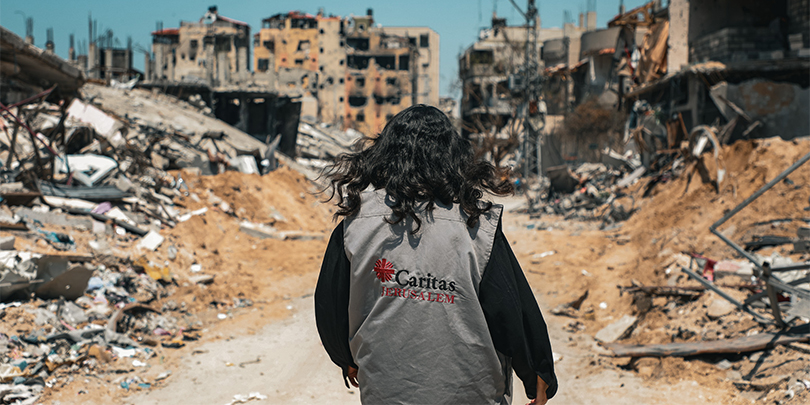Caritas Australia’s partners have reported a successful delivery of supplies to support 2,500 families in northern Gaza, after aid access to the war-torn region had dwindled to its lowest level since October.
The report stated teams on the ground were “hopeful that we will see other supplies moving into Gaza soon – especially shelter materials given that there are now over 800,000 newly or re-displaced people since the evacuation orders”.
Currently, more than 2000 trucks and litres of fuel are stranded on the Egypt border. Caritas’s partners in the region also have 10,000 tents waiting in Egypt and Jordan, alongside tarps, hygiene kits and other essential items.
Since October 7, 2023, 1483 Israelis, and 35,709 Palestinians have lost their lives. Some 1.7 million people in Gaza are displaced and 1.1 million face catastrophic levels of food insecurity.
Earlier this month, incoming truckloads of aid reached their lowest level since late October 2023, with as few as five of the required 500 trucks entering Gaza on some days.
Official orders forced the immediate evacuation of 34 neighbourhoods in Rafah in southern Gaza and in Jabalia in northern Gaza, which was quickly followed by aerial and land operations.
The areas of ordered evacuation included densely crowded neighbourhoods, a hospital, and refugee camps in Rafah where 1.4 million people had fled in recent months. Within days, an estimated 800,000 people from Rafah had relocated.
Melville Fernandez, Caritas Australia’s humanitarian emergencies associate director at Caritas Australia, said: “We’re immensely proud of our 13 partners in Gaza who have continually expanded their operations throughout this conflict, giving them the ability to redirect aid efforts in response to constant changes in military activity.”
“Make no mistake though, political pressure to re-open the Rafah crossing is crucial. People have spent close to eight months under bombardment, with little food, water, medicine, or shelter.
“Many have sustained life-changing injuries, and all are suffering psychological trauma. Aid agencies must have unimpeded access to start addressing this humanitarian disaster.”
By cathnews






